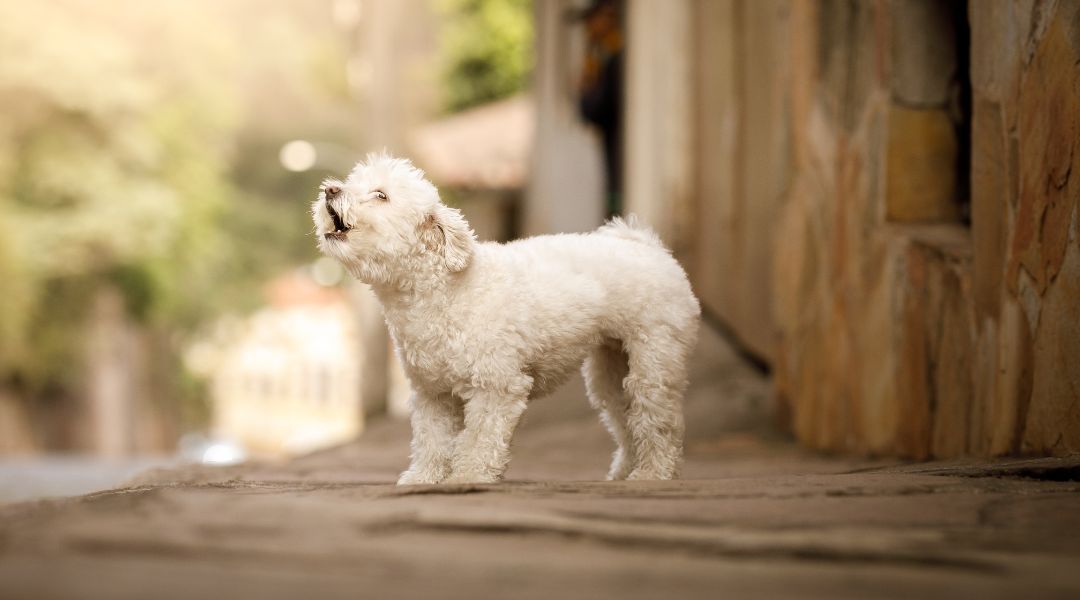Break the barking habit

Like the way humans talk, dogs communicate through barking and it is normal behaviour for any canine. They all bark for different reasons to try and tell us different things; “I’m bored, come play with me!”, “I’m excited!” or “I’m scared, back off”. When dogs bark frequently, it can become distressing for the owner who, without realising, rewards bad behaviour by giving the dog attention in an attempt to stop the barking. Good, quiet behaviour should always be rewarded with pats, cuddles and treats and barking behaviour should be ignored – especially if the sole reason is to gain your attention.
Help with specific barking behaviours
If your dog is attention seeking;
Reward good behaviour only, give lots of pats, treats and affection when they are quiet to show the dog that this type of behaviour gets your attention. Ignore bad behaviour.
If your dog has too much energy:
Walk them or play games in the morning so it tires them out for day, until you come home to play.
If your dog is being protective and territorial
To people: use predictable passers by to help turn strange people into a positive experience by giving the dog treats and positive attention when these people are around, be sure to only reward good behaviour. Provide neighbours with some treats too so they can reward your dog and build a ‘friendship’ instead of them being frustrated at your dog.
To other dogs: arrange supervised doggy play dates with the neighbours dogs so they get the opportunity to learn about each other and become friends. This may help reduce the tension between your dog and a new dog, as your dog is good at having friends and meeting other dogs in a good environment.
If your dog is bored;
Buy some new toys and puzzles and hide them around the backyard for them to play with and find, its like a big game of hide and seek for your puppy pal. Similarly, rotate the toys every few days to keep things interesting.
If your dog wants company;
Teach them it is okay to be alone from a young age; leave them alone for short intervals and slowly extend the time apart (make sure the dog has toys to preoccupy themselves), also do not fuss about leaving or returning home and make this an unexciting event in the day.
Getting on top of dog barking as soon as possible is important to provide a well-mannered member of the family. If barking is a continuous issue then canine behavioural classes are available for dogs of all ages and could be considered as a professional approach to training your dog. Contact us on 9707 3855 if you would like more information regarding training options for your dog.
Puppy school is a great option for new additions to the family. Puppy Preschool is a great fun way to learn more about your pet, get some basic training tips and above all, teach the puppies how to socialise with dogs they don’t know. It is a great age to socialise them with like minded puppies and leads to well balanced happy puppies. The course is run over four evening sessions by our nurses and really is a lot of fun! Barking is a behaviour which is discussed in the course and can help can be tailored for you and your dog. Call 9707 3855 to talk to our friendly staff about the next available dates for puppy school.
This article was written with the help of the RSPCA: https://www.rspcansw.org.au/learn/dogs/barking
